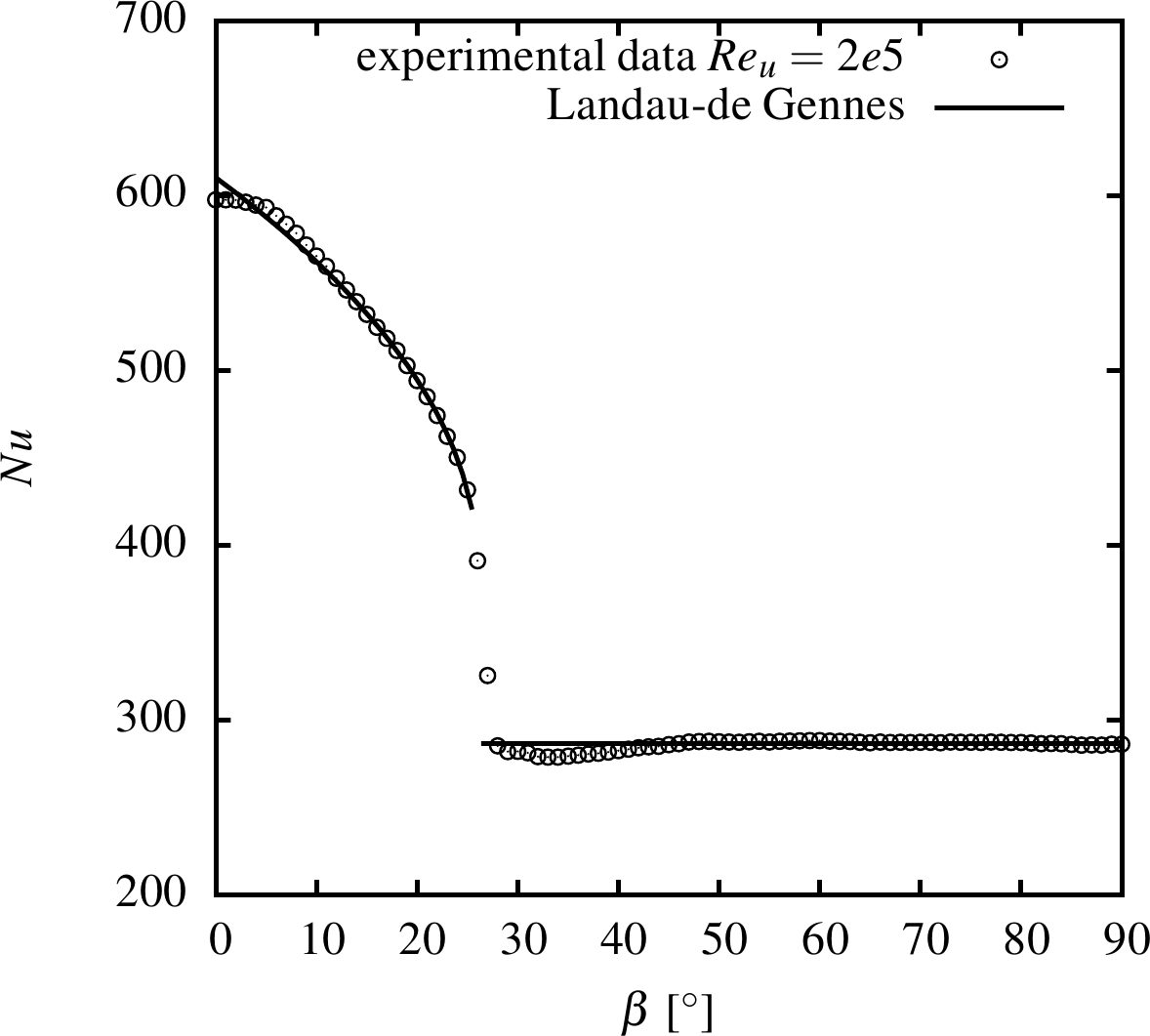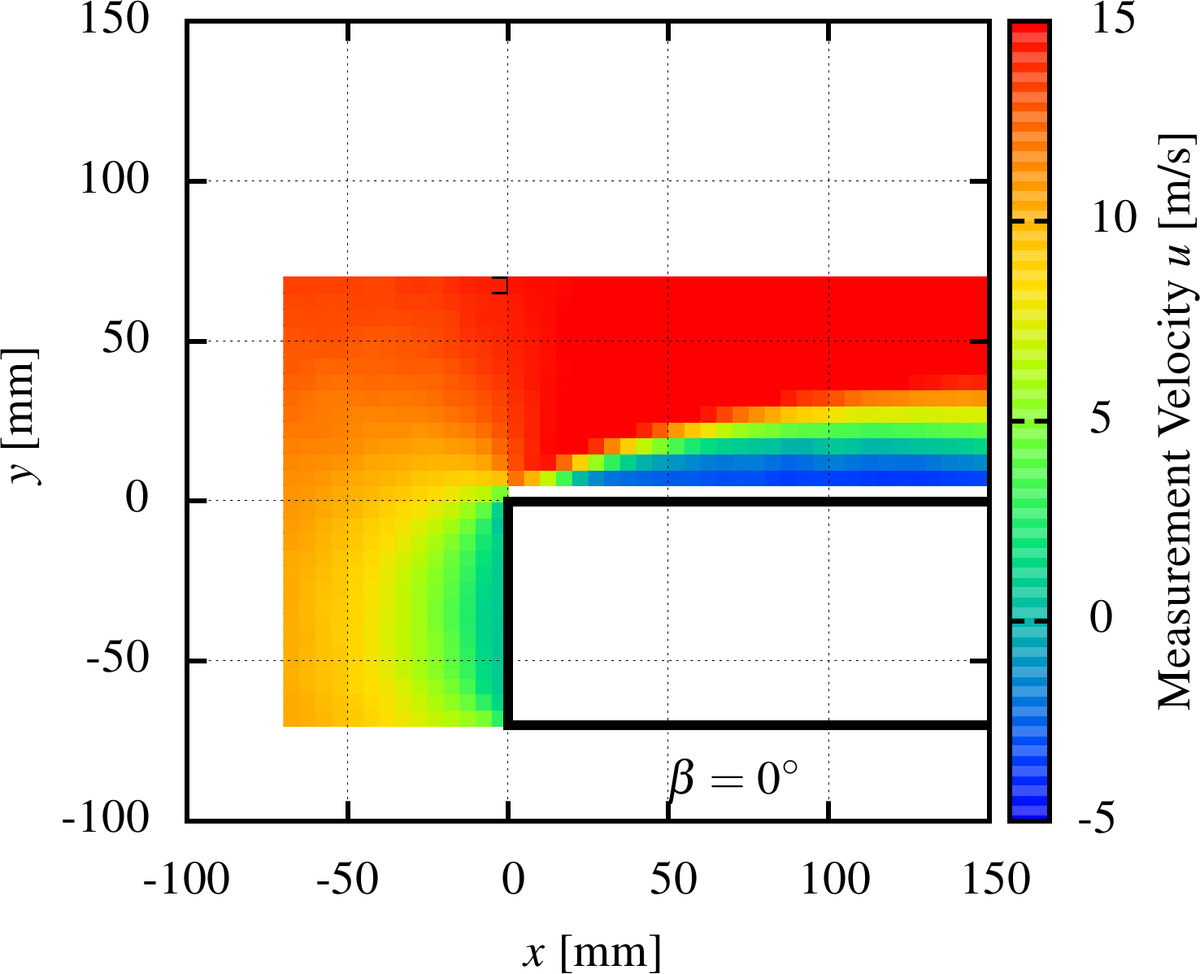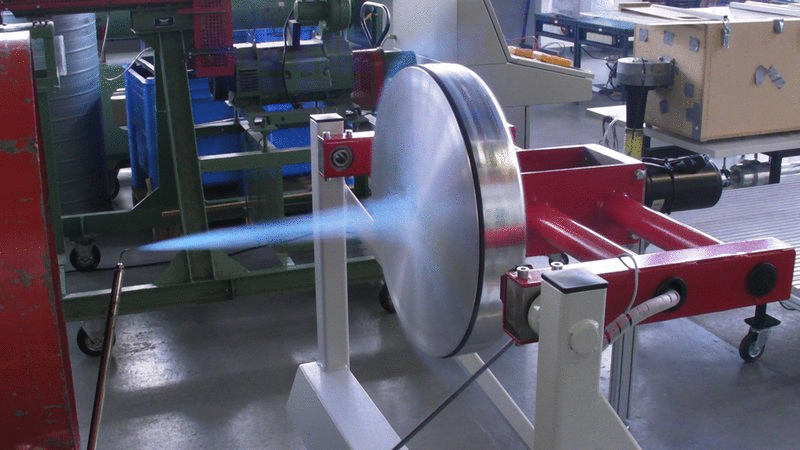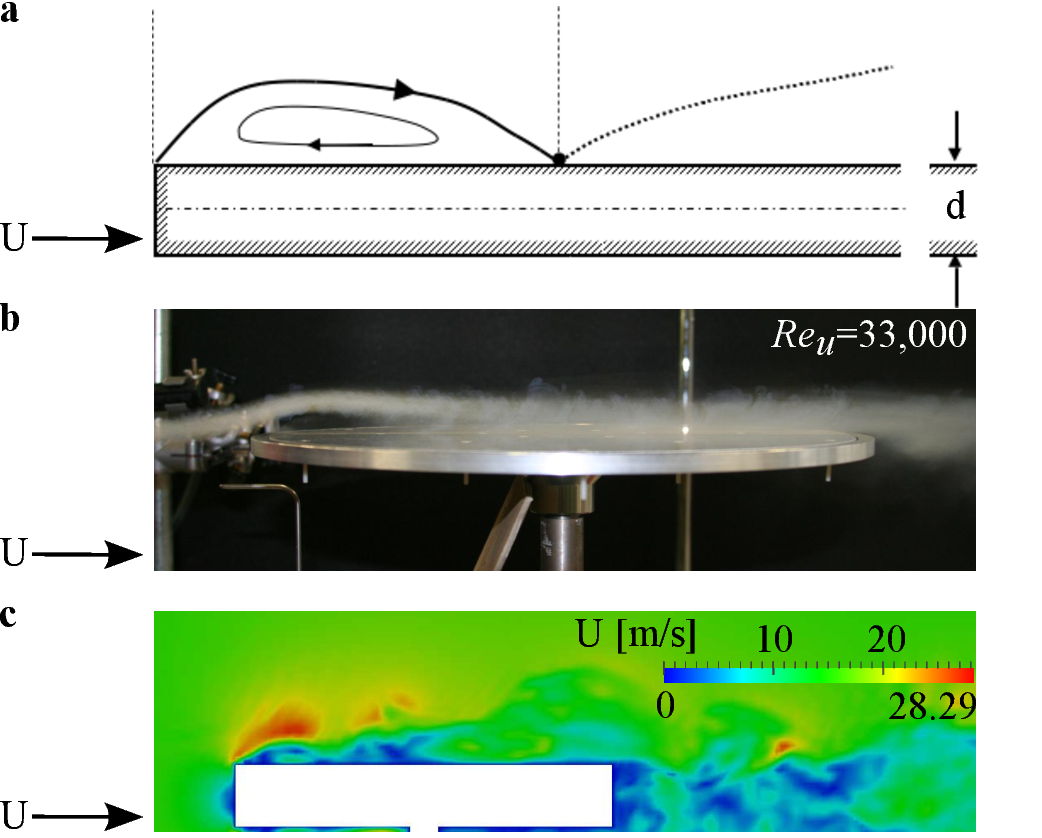
Aim of the Research Project:
The understanding of the heat transfer and flow field behavior of rotating systems is essential from the fundamental point of view and for turbo machinery design. The majority of the publications considers enclosed rotating disk systems and only few is known about the convective heat transfer of free rotating disk systems in a forced flow.
This project aims a detailed investigation of the physics of free rotating disks in forced air streams for different rotational and crossflow Reynolds number and special attention on the angle of incidence. Measurements of the mean heat transfer and flow field by LDA supported by Large-Eddy-Simulations (LES) are important corner points of our research.
Current State and Scope of the Project:
The flow over a plate and the stagnation point are well known phenomena. In previous work we investigated discrete angles of incidence on the mean heat transfer of a rotating disk. In our current research a clear study of the symmetry behavior of the flow field was conducted based on the measurement of the convective heat transfer coefficients. The angle of incidence was scanned with high angular resolution over the entire range between the both limited cases of a perpendicular disk and a disk in a parallel forced flow. We found that the flow and heat transfer regimes were governed by a reduced number of characteristic parameters for specific ranges of Reynolds numbers and angle of incidence.
The results also demonstrated the existence of non-continuous transitions between different flow regimes for specific values of the angle of incidence. This unexpected behavior is explained within the framework of symmetry and fundamental invariants.






